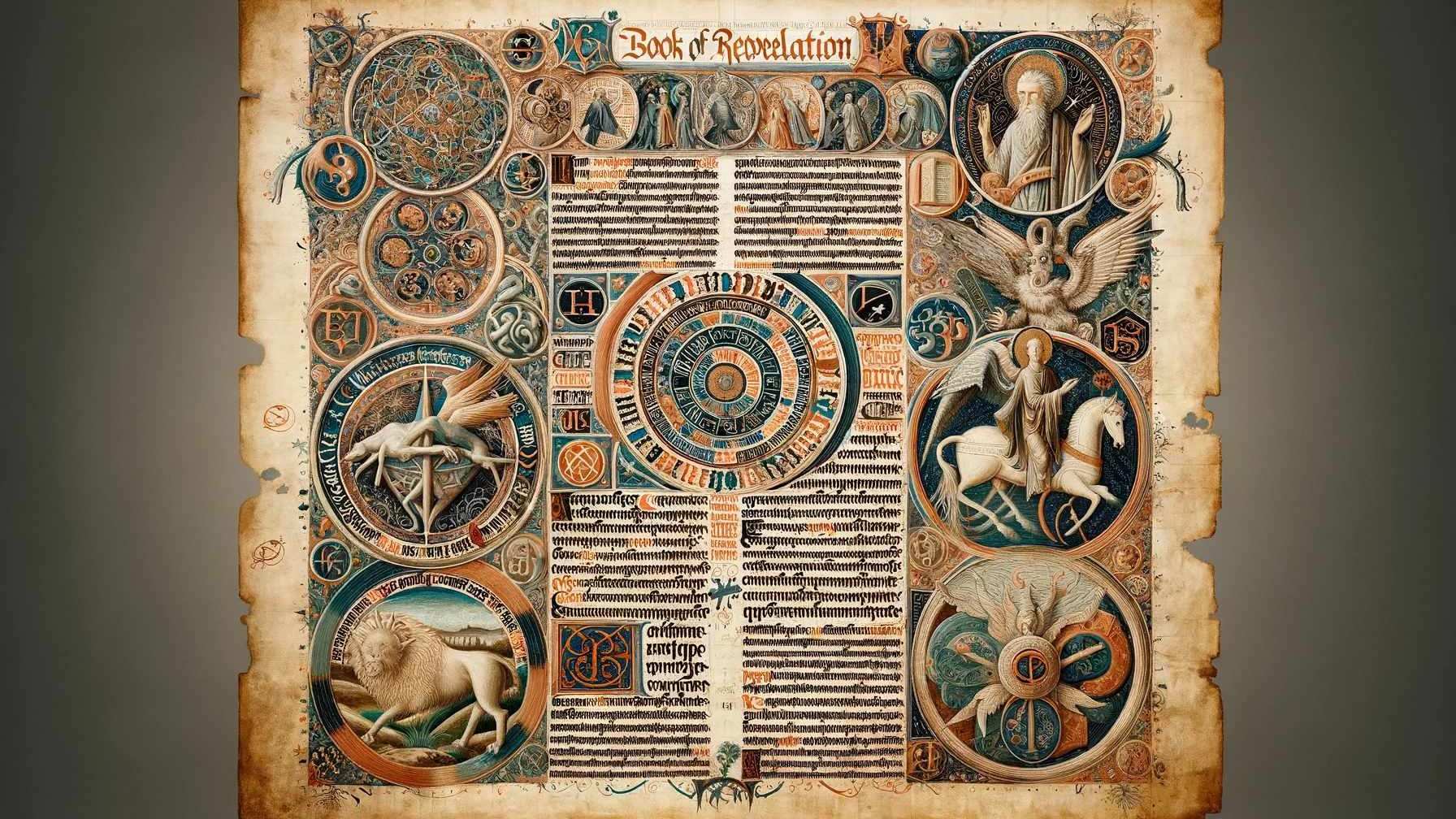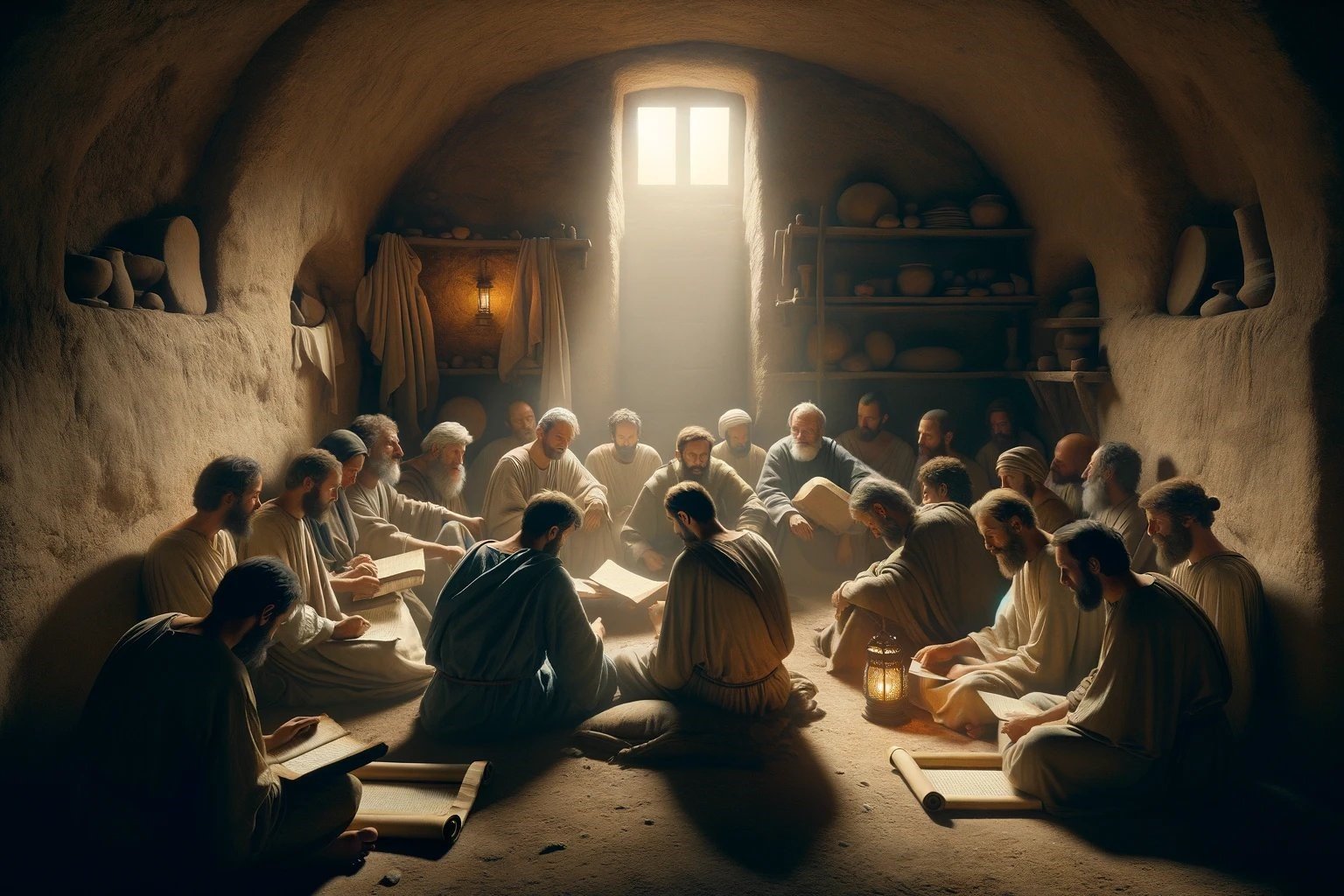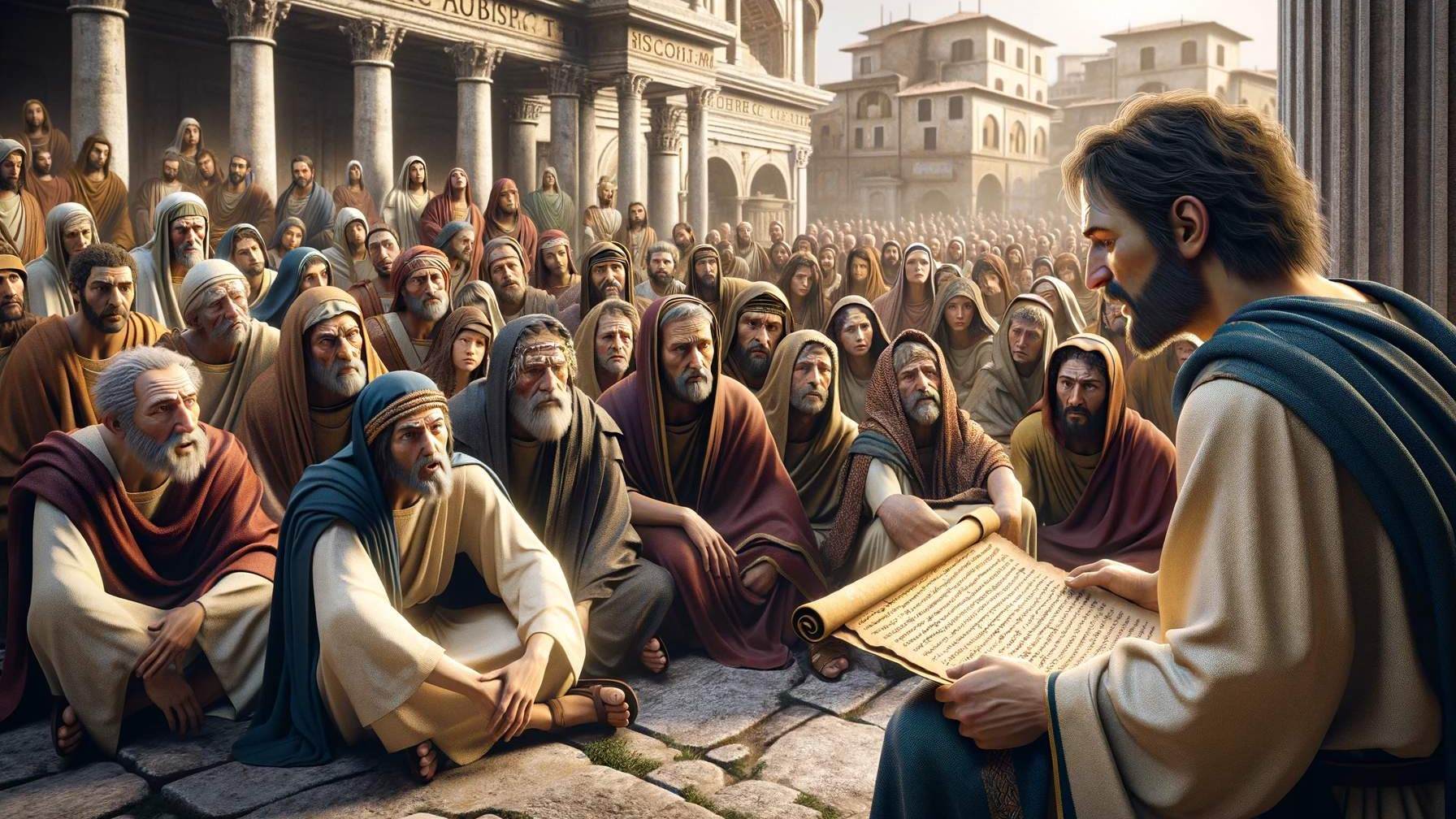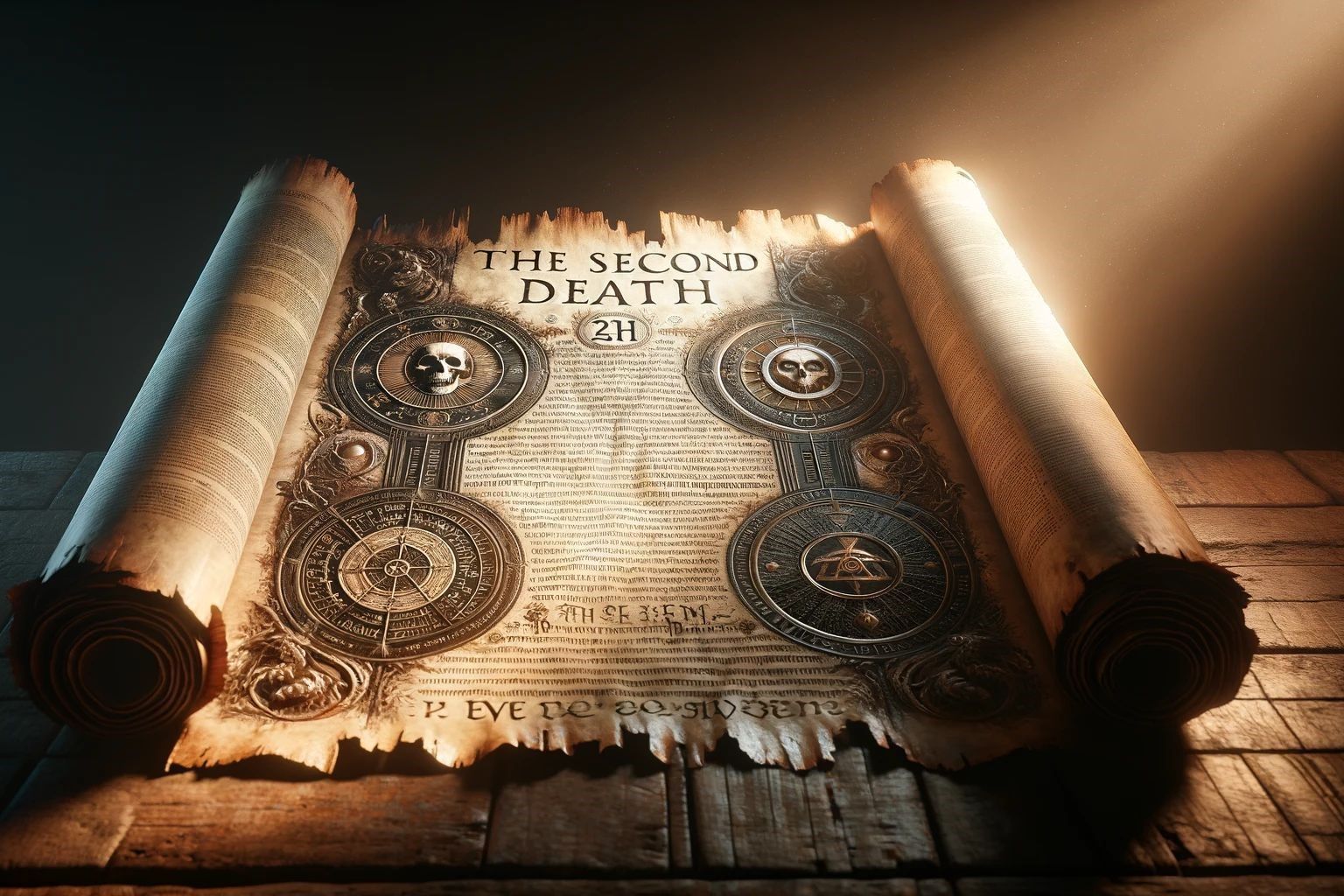Home>Bible Facts>When Does The Book Of Revelation Take Place


Bible Facts
When Does The Book Of Revelation Take Place
Published: February 11, 2024
Ericka Andersen, an editor at Christian.net, expertly merges digital strategy with content creation, focusing on faith and societal issues. Her communication skills enhance the platform's engaging narratives, fostering meaningful dialogue on belief's impact on society.
Discover when the Book of Revelation takes place and gain valuable insights into Bible facts with our in-depth analysis. Uncover the timeline and significance of this pivotal biblical text.
(Many of the links in this article redirect to a specific reviewed product. Your purchase of these products through affiliate links helps to generate commission for Christian.net, at no extra cost. Learn more)
Table of Contents
Introduction
The Book of Revelation, the final book of the New Testament, is a captivating and enigmatic piece of literature that has intrigued and perplexed scholars, theologians, and believers for centuries. Its vivid imagery, symbolic language, and prophetic messages have sparked numerous debates and interpretations regarding its timeframe and relevance to human history. As we delve into the discussion of when the events in the Book of Revelation take place, it is essential to consider the historical context, various interpretations, and prevailing theories that shed light on this intriguing subject.
The Book of Revelation, also known as the Apocalypse of John, was written by the apostle John while he was exiled on the island of Patmos. This visionary work is believed to have been composed during a period of intense persecution of early Christians under the Roman Empire. The author, John, received a series of profound visions and revelations, which he recorded in the form of letters to seven churches in Asia Minor, conveying messages of encouragement, warning, and hope amidst the challenges they faced.
Revelation is a multifaceted and complex text that encompasses apocalyptic, prophetic, and symbolic elements, making it a rich tapestry of spiritual truths and eschatological themes. The book's overarching message revolves around the ultimate triumph of good over evil, the sovereignty of God, and the fulfillment of His divine plan for the world. Its vivid descriptions of cosmic upheavals, celestial beings, and the ultimate victory of Christ have captivated readers across generations, inspiring awe, contemplation, and a quest for understanding.
As we embark on this exploration of the timeframe of the Book of Revelation, it is crucial to approach the subject with an open mind, recognizing the diversity of perspectives and interpretations that have emerged throughout history. By examining the historical context, diverse theological viewpoints, and scholarly insights, we can gain a deeper appreciation for the profound significance of Revelation and its relevance to the past, present, and future of humanity.
Historical Context of the Book of Revelation
The historical context of the Book of Revelation provides invaluable insights into the circumstances surrounding its composition and the challenges faced by the early Christian communities. The author, traditionally identified as the apostle John, composed this visionary work during a tumultuous period in the first century AD. The Roman Empire, under the reign of Emperor Domitian, imposed severe persecution on followers of the Christian faith, leading to widespread suffering and martyrdom.
Against this backdrop of oppression and hostility, the Book of Revelation emerged as a source of profound encouragement and spiritual fortitude for the beleaguered Christian congregations. John, exiled to the island of Patmos for his unwavering commitment to the gospel, received a series of apocalyptic visions that conveyed messages of hope, resilience, and divine justice to the persecuted believers.
The seven churches in Asia Minor, to whom the letters in Revelation are addressed, grappled with the pressures of societal conformity, idolatry, and the ever-present threat of persecution. The symbolic language and vivid imagery employed in Revelation resonated deeply with these communities, offering them a transcendent perspective on their present tribulations and a vision of the ultimate triumph of God's kingdom.
The historical context of Revelation also reflects the broader socio-political landscape of the Roman Empire, characterized by imperial cult worship, oppressive policies, and the deification of the emperor. In this environment, the Christian proclamation of Jesus as the true Lord and Savior clashed with the prevailing ideology of imperial supremacy, resulting in intense hostility and conflict.
By understanding the historical milieu in which the Book of Revelation emerged, we gain a profound appreciation for its relevance and enduring significance. It stands as a testament to the unwavering faith and resilience of early Christians in the face of persecution, offering timeless messages of hope, perseverance, and the ultimate victory of God's redemptive plan.
The historical context of Revelation serves as a poignant reminder of the enduring relevance of its messages, resonating with believers across centuries and providing enduring insights into the nature of faith, perseverance, and the ultimate fulfillment of God's divine purposes.
Interpretations of the Timeframe of Revelation
The timeframe of the events depicted in the Book of Revelation has been a subject of intense scholarly debate and theological inquiry. Various interpretations have emerged, reflecting diverse perspectives on the temporal context of the book's prophetic visions. These interpretations encompass a wide spectrum of viewpoints, ranging from historical, symbolic, to futurist perspectives, each offering unique insights into the timeframe of Revelation.
Historical Interpretation: Some scholars and theologians advocate for a historical interpretation of Revelation, positing that the book primarily pertains to the events and challenges faced by the early Christian communities in the first century AD. According to this viewpoint, the apocalyptic imagery and prophetic messages in Revelation are seen as symbolic representations of the struggles, persecutions, and triumphs experienced by the early church within the historical context of the Roman Empire. This perspective emphasizes the relevance of Revelation to its original audience while acknowledging its broader applicability to subsequent generations.
Symbolic Interpretation: Another prevalent interpretation of the timeframe of Revelation is rooted in symbolic or allegorical readings of the text. Proponents of this view assert that the visions and prophecies in Revelation are symbolic representations of timeless spiritual truths, rather than specific chronological events. This approach emphasizes the universal and transcendent nature of Revelation's message, suggesting that its themes of cosmic conflict, divine judgment, and ultimate redemption are applicable to all epochs and are not confined to a particular historical timeframe.
Futurist Interpretation: Conversely, the futurist interpretation of Revelation posits that the events described in the book primarily pertain to future, eschatological occurrences that are yet to unfold. Adherents of this perspective view Revelation as a roadmap for the end times, depicting a sequence of cataclysmic events, the rise of a global ruler, and the ultimate return of Christ to establish his kingdom. This interpretation often involves intricate analyses of prophetic symbolism and attempts to correlate the book's imagery with contemporary geopolitical developments, seeking to discern signs of the impending fulfillment of Revelation's prophecies.
Each of these interpretations offers valuable insights into the timeframe of Revelation, reflecting the diverse ways in which the book's enigmatic visions and messages have been understood and applied throughout history. While the debate regarding the precise temporal context of Revelation continues, the enduring significance of its themes and the profound truths it conveys transcend temporal boundaries, resonating with believers across epochs and inviting contemplation of the ultimate purposes of God's redemptive plan.
Theories on the Timing of the Events in Revelation
The Book of Revelation has sparked a myriad of theories regarding the timing of its prophetic events, reflecting diverse perspectives on the temporal unfolding of its apocalyptic visions. These theories encompass a wide array of interpretations, ranging from historical, symbolic, to futurist viewpoints, each offering unique insights into the temporal context of Revelation's enigmatic prophecies.
Historical Interpretation: One prevalent theory regarding the timing of the events in Revelation is rooted in a historical interpretation, which posits that the book primarily pertains to the challenges and triumphs experienced by the early Christian communities in the first century AD. Advocates of this viewpoint view the apocalyptic imagery and prophetic messages in Revelation as symbolic representations of the struggles, persecutions, and ultimate victory of the early church within the historical context of the Roman Empire. This perspective emphasizes the relevance of Revelation to its original audience while acknowledging its broader applicability to subsequent generations.
Symbolic Interpretation: Another compelling theory revolves around a symbolic or allegorical interpretation of Revelation, suggesting that its visions and prophecies are timeless representations of spiritual truths, rather than specific chronological events. Proponents of this view assert that the cosmic conflict, divine judgment, and ultimate redemption depicted in Revelation transcend temporal boundaries, offering universal insights into the enduring struggle between good and evil. This approach underscores the timeless relevance of Revelation's message, inviting contemplation of its profound spiritual themes across diverse historical epochs.
Futurist Interpretation: Conversely, the futurist interpretation of Revelation presents a theory that the events described in the book primarily pertain to future, eschatological occurrences that are yet to unfold. Adherents of this viewpoint regard Revelation as a roadmap for the end times, depicting a sequence of cataclysmic events, the rise of a global ruler, and the ultimate return of Christ to establish his kingdom. This interpretation often involves intricate analyses of prophetic symbolism and attempts to discern contemporary geopolitical developments as potential signs of the impending fulfillment of Revelation's prophecies.
These theories on the timing of the events in Revelation reflect the diverse ways in which the book's prophetic visions and messages have been interpreted throughout history. While the debate regarding the precise temporal context of Revelation continues, the enduring significance of its themes and the profound truths it conveys transcend temporal boundaries, resonating with believers across epochs and inviting contemplation of the ultimate purposes of God's redemptive plan.
Conclusion
The discussion surrounding the timeframe of the Book of Revelation encompasses a rich tapestry of historical context, diverse interpretations, and compelling theories, each offering unique insights into the enigmatic visions and prophecies contained within this apocalyptic work. As we navigate the complexities of Revelation's temporal framework, it becomes evident that the book's enduring significance transcends specific historical epochs, inviting contemplation of timeless spiritual truths and the ultimate fulfillment of God's redemptive plan.
The historical context of Revelation, rooted in the persecution and challenges faced by early Christian communities under the Roman Empire, serves as a poignant backdrop for understanding the profound messages of hope, resilience, and divine justice conveyed in the book. The symbolic language and vivid imagery employed by the author, John, resonated deeply with the persecuted believers, offering them a transcendent perspective on their present tribulations and a vision of the ultimate triumph of God's kingdom. This historical context underscores the enduring relevance of Revelation's themes, resonating with believers across centuries and providing enduring insights into the nature of faith, perseverance, and the ultimate fulfillment of God's divine purposes.
The diverse interpretations of the timeframe of Revelation, encompassing historical, symbolic, and futurist perspectives, reflect the multifaceted nature of this visionary work. While debates persist regarding the precise temporal context of its prophecies, the enduring significance of Revelation's themes and the profound truths it conveys transcend temporal boundaries, resonating with believers across epochs and inviting contemplation of the ultimate purposes of God's redemptive plan.
In conclusion, the Book of Revelation stands as a testament to the enduring resilience of faith in the face of adversity, offering timeless messages of hope, perseverance, and the ultimate victory of God's redemptive plan. Its enigmatic visions and prophetic messages continue to captivate and inspire, transcending temporal constraints and inviting contemplation of the profound spiritual truths that resonate across diverse historical epochs. As we grapple with the mysteries of Revelation's timeframe, we are reminded of the enduring relevance of its messages, serving as a source of comfort, guidance, and profound spiritual insight for believers throughout the ages.















